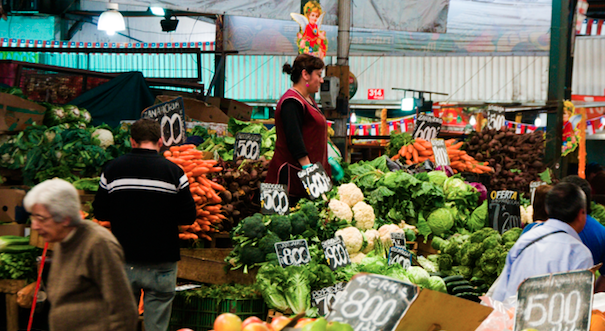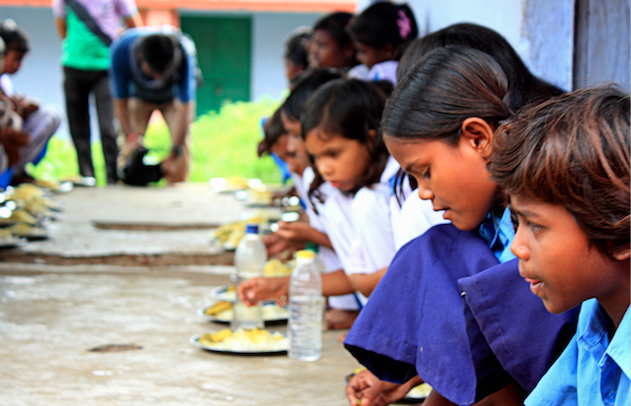How do we transform food systems, both locally and globally? What role does Sweden have in this transformation? And what can we learn from the United Nations Food Systems Summit (UNFSS)? These were the questions guiding the hybrid webinar organised by the Swedish Royal Academy of Agriculture and Forestry (KSLA), the Swedish FAO-Committee, and the Swedish Government Offices on October 29th. Each year, the Swedish FAO-Committee marks World Food Day with a special event related to food insecurity and malnutrition – this year, there was a focus on a broader approach to the issues, aiming at finding systemic solutions from the start.
During the event, representatives from various sectors and continents shared their thoughts, concerns and hopes about the outcomes of the UNFSS, held in September this year. Many stakeholders have followed with criticism the process leading up to the Summit. Hence, a considerable number of organisations have decided not to take part in any dialogue nor event. The question of transparency and inclusivity remains open even after the Summit. However, Peter af Wetterstedt, Ministry of Business, Industry and Innovation, reminded at the beginning of the webinar that ”the Agenda 2030 and its SDG’s was one of the goals of the Summit as a whole – and this means that no one should be left behind”. If trust is in place towards world leaders, communities should thus feel well protected and taken care of.
Need for coherent action towards sustainable food systems
Interveners at the webinar stressed the great momentum created by the Summit, leading to an increased attention to systemic thinking and to the creation of networks amongst actors previously disconnected from each other – and thus the need to keep working with the same enthusiasm. Peter further added that “to go from deliberation to action, we need a follow-up” – raising the problem of accountability and lack of guidance as the Summit was coming to an end in September.
A strong emphasis in the discussion on how to best transform the food system laid in science’s role in finding solutions to e.g., tackle food waste, improve yields, or minimise pesticide use. Policies play a key role in implementing food strategies, as Sweden has done, for example. Yet, this optimistic way of tackling issues lacks an anchorage on the ground, as Dr Johann Swimmen, Director General of the International Food Policy Research Institute (IFPRI) & Global Director, Systems Transformation, CGIAR, pointed out:
Technology or policy themselves will not make any change. We must make sure that technology is adopted, that consumer behaviour is changed – for this we need change at all levels, both on a national and a global level.
According to Ismahane Elouafi, Chief Scientist at the Food and Agriculture Organization (FAO) of the United Nations, little attention is paid to research and knowledge, as valuable resources in a particular context, even at FAO. This must change, and knowledge-based action will be promoted by the work of a soon-to-be-launched hub, hosted by FAO. It will bring together different entities of the UN, such as UNEP (United Nations Environment Programme) and IFAD (International Fund for Agricultural Development) – merging knowledge on various aspects to consider when adopting a holistic view, complementing each other with distinctive expertise.
Focus on systemic solutions on the ground
All attention, time and money given to the Summit must be put into action and perceived throughout the world. Financial funds must be mobilised, and leading voices and actors gathered to create a strong wind of change. Coalitions have been built as an outcome of the Summit preparations, enabling people worldwide to connect and share experiences on a specific problem but in distinctive regions. As reminded by Ismahane, “all solutions are not adapted to all regions”.
Damian Sulumo, MVIWAARUSHA, a key person in Tanzania’s Food Summit-dialogue, presented 10 actions to alleviate his country from food insecurity and create sustainable food systems. Agroforestry and holistic thinking are at the heart of this endeavour: “model agroecology farms don’t only increase food security and fulfil the farmer’s needs, they also serve educational purposes for neighbouringfarmers”.
Sara Jervfors, Dietician and Project Manager for Matlust, Diet for a green planet, Södertälje Municipality, showed how small substitutions in public meals could significantly change and strengthen local food networks. Using Swedish yellow peas instead of imported chickpeas, cooking with surplus fish instead of salmon, buying laying hen instead of chicken hen were stated as an example.
The important role of communal catering, especially of schools was stressed by Katarina Eriksson, Project and Partnership Development Director, Tetra Laval Food for Development, who went over a few decades of their school milk programme – proving the benefits of offering nutritious food to school children, to build stronger future generations.

